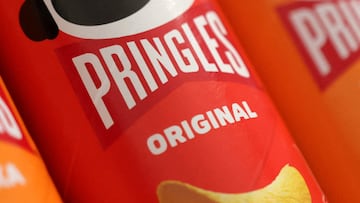What products does Kellanova sell? The snack food company to be bought by Mars
Mars to aquire Kellanova for $36 billion in historic sale between two giants in the food industry. What brands fall under Kellanova?


Kellanova, which may be better known to some by its previous name, the Kellogg Company, will be bought by Mars, furthering consolidation within the food industry. The deal, which reaches $36 billion, is expected to be finalized in the coming days. Kellanova made more than $13 billion in sales in 2023 and employs around 23,000 people globally.
What brands are under Kellanova’s control?
In 2021, the Guardian and the NGO Food and Water Watch found that in the supermarkets they analyzed, “85% of the groceries” available for purchase were produced by “four firms or fewer controlled more than 40% of market share.” The acquisition of Kellanova by Mars will shrink the number of suppliers even further, as popular brands like Pringles, Eggo, Morningstar Farms, Pop-Tarts, Pringles, Rice Krispies Treats, and dozens of cereals will be sold under a different brand, with consumers unaware that such a move could impact prices as Mars acquires greater control over supermarket shelves.
Kellanova Brands sold in the US
- Austins
- Carr’s
- Cheez It
- Club Crackers
- Eggo
- Grahams Crackers
- Frozen Breakfast
- Morning Star Farms
- Nutri Grain
- Pop Tarts
- Pringles
- Pure Organic
- Rice Krispie Treats
- Rxbar
- Special K
- Toasteds
- Town House
- Zesta
Federal Trade Commission has not intervened in the sale
Related stories
While the Federal Trade Commission has cracked down on monopolistic and illegal competition by major corporations, the federal agency has not placed any barriers in front of Mars as it requires Kellanova. However, the company has not been able to avoid the media spotlight in recent years. In September 2021, a major strike by around 1,400 unionized workers at facilities in Battle Creek, Michigan; Omaha, Nebraska; Lancaster, Pennsylvania; and Memphis, Tennessee, began.
NEW: Striking Kellogg's workers are defiant. "We're not willing to sell our souls."
— More Perfect Union (@MorePerfectUS) December 14, 2021
Cereal production has plummeted. Kellogg's is having to rely on products made in Mexico and Canada. The company now admits there is a "temporary shortage" of its brands.
The strike is working. pic.twitter.com/WrBYt1EEEx
After more than two months on strike, workers rejected an agreement, and the company responded that they would fire all 1,400 striking workers. Such a threat galvanized public support behind the workers, and by the end of the year, the workers had agreed to a collective bargaining agreement that contained protections from plant closures through October 2026, an end to the “two-tier system” that limits the power of the union by making some workers ineligible to join, “significant increase in the pension multiplier,” and other benefits.
Complete your personal details to comment